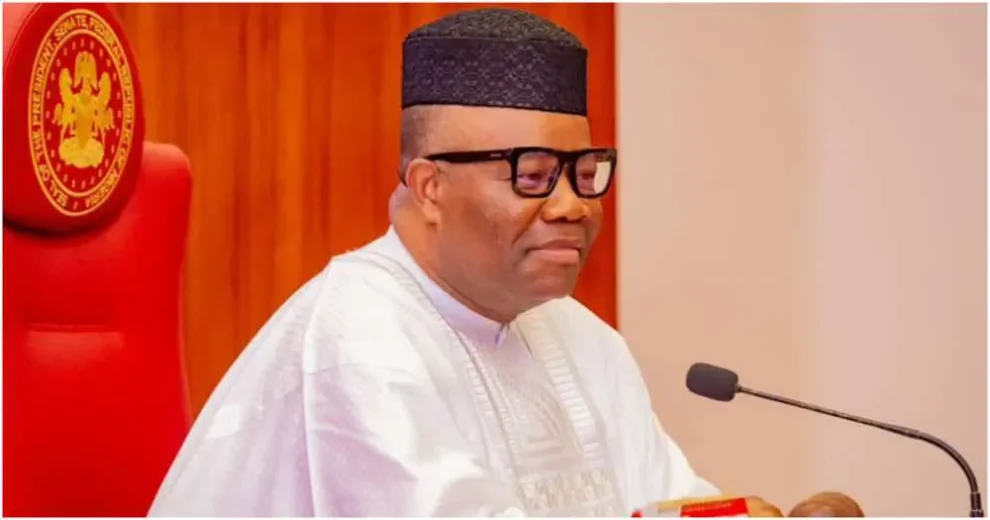Nigeria’s Senate has approved two significant tax reform bills, part of President Bola Tinubu’s broader economic agenda.
The bills, namely the Nigeria Revenue Service Establishment Bill and the Joint Revenue Board Establishment Bill, were passed on Wednesday after a review of a report by an ad hoc committee led by Senator Sani Musa.
Senators debated and considered each clause of the bills during the plenary session, before passing them via a voice vote.
Senate President Godswill Akpabio welcomed the development, expressing optimism that the reforms would “transform how taxes are collected and shared in Nigeria.” He emphasized the bills’ potential to “add immense value to governance.”
Mr. Akpabio also pledged that the remaining two tax reform bills would be finalised on Thursday, even if it required the Senate to extend its sitting hours. “We are committed to concluding the outstanding bills tomorrow, even if we have to stay here until 10 p.m.,” he said.
In a related decision, the Senate rejected a proposal to increase the Value-Added Tax (VAT) to 10 percent, opting to maintain the current rate of 7.5 percent.
The two bills scheduled for consideration and passage on Thursday are the Nigeria Tax Administration Bill and the Nigeria Tax Bill.
President Tinubu’s four tax reform bills were submitted to the National Assembly in October 2024. The House of Representatives had already passed all four bills.
The reforms are seen as a crucial part of the government’s efforts to streamline tax collection, improve revenue generation, and enhance economic governance in Nigeria. These developments in the Senate indicate a significant step towards implementing President Tinubu’s economic policies.Sources and related content





Add Comment